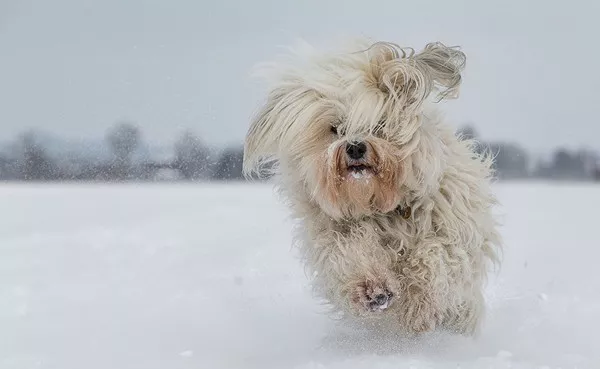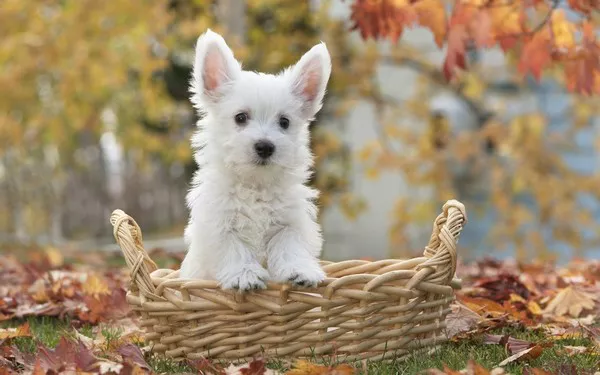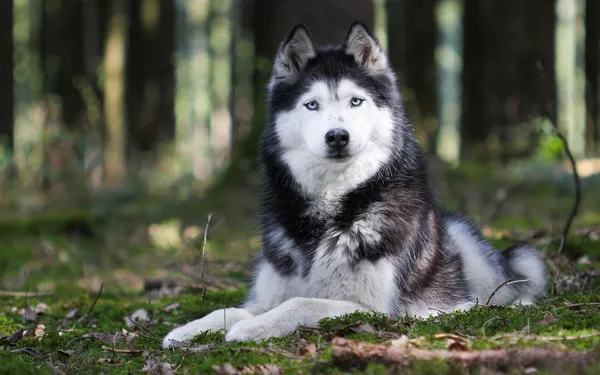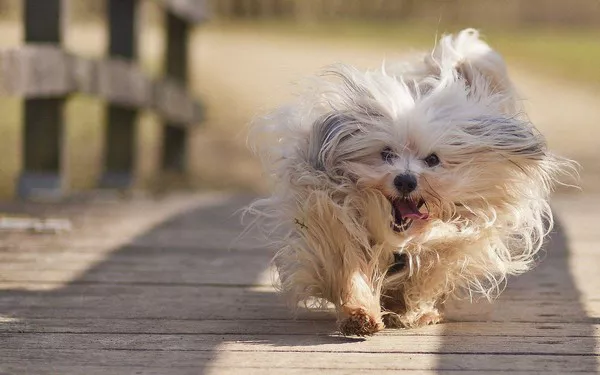Schnauzers are an intelligent, lively, and versatile dog breed that has become popular among dog owners due to their distinctive appearance and engaging personality. However, one of the most common questions potential schnauzer owners have is whether these dogs are good with other dogs. In this article, we will explore the temperament, living habits, and breed characteristics of schnauzers, breaking down how these factors influence their behavior around other dogs. We’ll also look at the different types of schnauzers—Miniature, Standard, and Giant—and how each interacts with other dogs. Finally, we will discuss how owners can promote positive interactions between schnauzers and other dogs.
A Brief Introduction to the Schnauzer Breed
The schnauzer is a breed originating in Germany, known for its distinctive beard and bushy eyebrows. The name “schnauzer” is derived from the German word for “snout” or “muzzle,” which aptly describes their most prominent physical feature. Schnauzers come in three distinct sizes: Miniature, Standard, and Giant. Each size was bred for different purposes, but they all share a common ancestry and many similar characteristics.
Miniature Schnauzer: Bred from the Standard Schnauzer and smaller breeds like the Affenpinscher, the Miniature Schnauzer was developed primarily as a small farm dog and a rat-catcher. Despite their small size (standing around 12 to 14 inches at the shoulder), they are known for their energy, intelligence, and bold personality.
Standard Schnauzer: The Standard Schnauzer is the original size of the breed and was used primarily as a guard dog, herding dog, and ratter. They stand around 18 to 20 inches tall and have a sturdy, muscular build. Standard Schnauzers are known for being intelligent, alert, and protective, which makes them excellent watchdogs.
Giant Schnauzer: As the largest of the schnauzer family, Giant Schnauzers were developed for droving cattle and guarding property. Standing 23 to 28 inches tall and weighing up to 95 pounds, they are a strong and powerful breed. Despite their size, they are also known for their intelligence and loyalty.
While all schnauzers share similar characteristics, their behavior around other dogs can differ depending on the individual dog’s temperament, the size variation, and the dog’s socialization.
General Temperament of Schnauzers
Schnauzers are generally known for their intelligence, loyalty, and high energy. These dogs form strong bonds with their owners and are typically very devoted family pets. However, their temperament can vary depending on their size and individual upbringing.
Intelligence and Trainability
One of the defining traits of schnauzers is their intelligence. Schnauzers are quick learners and often enjoy mental stimulation, which makes them highly trainable. Their intelligence, however, comes with some challenges, especially for first-time dog owners. Schnauzers can be independent thinkers, and while they learn commands quickly, they might also try to outsmart their owners. This independence can influence how they interact with other dogs, as schnauzers may assert dominance or exhibit stubborn behaviors in group settings.
Protective Instincts
Schnauzers were originally bred for guarding and protecting, and this instinct remains strong today. Standard and Giant Schnauzers, in particular, can be more territorial than Miniature Schnauzers. Their natural protectiveness makes them excellent watchdogs, but it can also cause problems when they meet unfamiliar dogs. Some schnauzers may view other dogs as threats to their territory or family, especially if they haven’t been socialized properly.
Energy Levels
Schnauzers are generally high-energy dogs, requiring regular exercise and mental stimulation. Miniature Schnauzers are very energetic, often needing more exercise than their small size suggests. Standard and Giant Schnauzers are equally active and thrive in homes where they have plenty of space to run and play. This high energy can make schnauzers excellent companions for other active dogs, but if not properly managed, it can also lead to behavioral issues such as overstimulation or frustration when interacting with other dogs.
Schnauzers and Socialization with Other Dogs
The key to understanding whether schnauzers are good with other dogs lies in their socialization. Like all breeds, schnauzers benefit greatly from early socialization with other dogs and animals. This process helps them learn appropriate behaviors and how to interact positively with other dogs.
Importance of Early Socialization
Socialization should begin as early as possible, ideally when schnauzers are still puppies. Exposing them to different environments, people, and other dogs helps them grow into well-rounded adult dogs. Puppies that are not properly socialized may develop anxiety, fear, or aggression when confronted with unfamiliar dogs.
Schnauzers have a strong prey drive due to their working dog background, and without proper socialization, they might see smaller animals or unfamiliar dogs as prey. Additionally, schnauzers, particularly the Standard and Giant varieties, have a natural tendency to dominate, which can lead to problems in multi-dog households if not managed early.
Schnauzer Play Style
Schnauzers are known for their boisterous and energetic play style, which can sometimes overwhelm more timid or smaller dogs. They tend to be assertive and are often not afraid to “stand their ground” when interacting with other dogs. This playfulness can be great for dogs with similar energy levels but may cause friction with more laid-back or shy dogs.
Properly socialized schnauzers typically play well with other dogs, but it’s essential for owners to monitor their behavior during interactions to ensure things don’t escalate into rough play or aggression. Supervised play sessions in neutral territory can help schnauzers learn to play well with others.
Understanding Size Differences and Their Impact
The behavior of schnauzers with other dogs can vary significantly depending on their size—Miniature, Standard, or Giant. Each size has unique traits that can affect how they interact with other dogs.
Miniature Schnauzer and Other Dogs
The Miniature Schnauzer, the smallest of the schnauzer breeds, often has a “big dog” personality in a small dog’s body. Despite their size, they can be bold and assertive when interacting with other dogs, especially if they feel threatened or protective. Miniature Schnauzers are usually good with other dogs of similar size or larger, but they might not get along well with significantly smaller dogs due to their high prey drive.
When properly socialized, Miniature Schnauzers are known to be friendly and playful with other dogs. However, they can be prone to “small dog syndrome,” where they overcompensate for their size by acting dominant or aggressive toward larger dogs. Owners should make sure to address this behavior through training and socialization to ensure their Miniature Schnauzer gets along with other dogs.
Standard Schnauzer and Other Dogs
The Standard Schnauzer is known for being confident, alert, and protective. As the original size of the breed, they have a more balanced temperament compared to the Miniature or Giant Schnauzers. Standard Schnauzers tend to get along well with other dogs, especially when they are introduced gradually and in a controlled setting.
However, their strong protective instincts can lead to territorial behaviors around other dogs, especially if they haven’t been well-socialized. Standard Schnauzers are often good with dogs they have grown up with or have been introduced to early on, but they may be wary of unfamiliar dogs. Training and ongoing socialization are essential to keep their protective instincts in check.
Giant Schnauzer and Other Dogs
As the largest of the schnauzer breeds, Giant Schnauzers can be intimidating to other dogs, and their interactions require careful management. They are known for their strong-willed nature and can be dominant when meeting other dogs. Their size and power make it particularly important for them to be socialized early and consistently.
Giant Schnauzers may not always be tolerant of smaller dogs due to their high prey drive and dominant nature, but with proper training and exposure, they can learn to coexist peacefully with other dogs. Owners of Giant Schnauzers must be diligent in maintaining control during dog interactions to prevent any potential conflicts. When raised in a multi-dog household, Giant Schnauzers tend to bond closely with other dogs they consider part of their “pack.”
Potential Challenges When Living with Multiple Dogs
Living with multiple dogs presents a unique set of challenges for any breed, and schnauzers are no exception. When adding a schnauzer to a household with other dogs, or vice versa, it is essential to consider their territorial instincts, energy levels, and play style.
Territorial Behavior
Schnauzers, particularly the Standard and Giant varieties, are naturally territorial due to their guarding instincts. This behavior can lead to conflicts when new dogs are introduced into their home environment. Owners should introduce new dogs gradually and supervise all interactions until the dogs establish their hierarchy and learn to coexist peacefully.
See Also: Do Schnauzers Shed a Lot of Hair?
Managing Energy Levels
Schnauzers are energetic dogs, and they do best in households with other active dogs that can match their enthusiasm. When living with dogs of different energy levels, schnauzers may become frustrated if their need for physical and mental stimulation isn’t met. This frustration can sometimes manifest in undesirable behaviors, such as rough play, barking, or destructive chewing. It is crucial to provide all dogs with plenty of exercise and outlets for their energy to prevent these issues.
Resource Guarding
Some schnauzers may exhibit resource-guarding behaviors, particularly around food, toys, or their owners. This behavior can create tension in a multi-dog household, especially if one dog tries to dominate the other. Owners should establish clear boundaries and routines for feeding and playtime to prevent competition over resources.
Tips for Ensuring Positive Dog Interactions
For schnauzer owners, there are several strategies to ensure that their dog gets along well with other dogs. Whether you’re introducing a schnauzer to a new dog or managing a multi-dog household, these tips can help foster positive interactions:
Start Socialization Early: The sooner you begin socializing your schnauzer, the better. Introduce them to a wide range of dogs, environments, and experiences while they are still young to help them develop into a well-adjusted adult dog.
Provide Consistent Training: Training should be a lifelong process for schnauzers. Use positive reinforcement techniques to teach them basic commands and appropriate behavior around other dogs.
Supervise Play Sessions: When introducing your schnauzer to other dogs, always supervise their interactions. This is especially important if your schnauzer is meeting a new dog for the first time. Watch for signs of stress or aggression, and intervene if necessary.
Match Energy Levels: Try to pair your schnauzer with dogs that have similar energy levels and play styles. A well-matched playmate can help prevent frustration and ensure that both dogs have a good time.
Use Neutral Territory for Introductions: When introducing a schnauzer to a new dog, do so in a neutral environment where neither dog feels the need to defend its territory.
Conclusion
So, are schnauzers good with other dogs? The answer largely depends on the individual dog, their socialization, and the efforts of their owner. In general, schnauzers can get along well with other dogs, especially when they are properly trained and socialized from an early age. However, their protective instincts, high energy levels, and assertive personalities can sometimes lead to challenges in multi-dog households. With careful management, training, and understanding of the breed’s characteristics, schnauzers can make excellent companions not only for humans but also for other dogs.
Related Topics:























